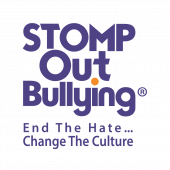PARENTING RESOURCES
- Dr. Edward Dragan, Bullying and Harassment Education Management Consulting, LLC
- Private Phone Consultations with Teen Expert Dr. Michael Bradley
- American Association of People with Disabilities
- Cornucopia of Disability Information
- The Centers for Disease Control and Prevention (CDC) provide parents with information on child and adolescent development, as well as positive parenting tips and guidance around issues of health and safety across various developmental stages. Content is also available in Spanish.
- Developed by the Society of Clinical Child and Adolescent Psychology, this website provides the public (and professionals) information on the mental health treatments with the strongest scientific support—and therefore, presumably, the most likely to work. In addition, the homepage includes a tool to help parents locate a child therapist (right side of the page, “How to Find a Child Therapist”).
- The American Psychological Association (APA) serves as an online resource center focused around healthy development. Information is provided across four broad, overlapping developmental domains: body, mind, emotions, and relationships. Given the sheer number of websites targeted toward children, adolescents, and families, it can be difficult as a parent to discern which to turn to for reliable information. This website holds a high standard, and provides links only to information that is supported by rigorous research.
- The Eunice Kennedy Shriver National Institute of Child Health and Human Development (NICHD)website includes information and links to additional resources on many topics and conditions relevant to child and adolescent development, including autism spectrum disorder, traumatic brain injury, and learning disabilities. Just navigate to the “A to Z Health & Human Development Topics” section (linked in multiple places on the NICHD homepage, including an “A-Z Topics” link in the upper right corner).
- The National Institute of Mental Health (NIMH) provides information like signs and symptoms, risk factors, and available treatments for a variety of psychiatric disorders. Links to information for several mental health conditions are provided on the NIMH homepage.
Anxiety
- Dr. Tamar Chansky, a recognized expert in child anxiety, with the goal of providing parents, educators, and mental health professionals with comprehensive, user-friendly information on the full range of anxiety disorders. The website includes information regarding how to identify anxiety symptoms (or “red flags”) as well as how to find effective treatments.
Anxiety and Depression
- The website of the Anxiety and Depression Association of America (ADAA) includes members such as clinicians and researchers who treat and study anxiety and depressive disorders, as well as individuals with anxiety and/or depression and their families. The website offers information on anxiety and depression, self-help tools, support groups, clinical trials, and professional development.
Attention Deficit Hyperactivity Disorder
- Children and Adults with Attention-Deficit/Hyperactivity Disorder (CHADD) is devoted to providing a wide array of information about ADHD, including public policy, legal rights, answers to frequently asked questions, and current research.
Autism (listed alphabetically)
- Founded in 2005 by the grandparents of a child with autism, Autism Speaks engages in fundraising and advocacy for autism spectrum disorder, and also works to raise awareness of the disorder and its manifestations.
- The website of the Autism Society of America provides information about autism spectrum disorder, including resources, research, and local chapters. Content is also available in Spanish.
Depression and Bipolar Disorder
- This website is operated by the Depression and Bipolar Support Alliance. It provides information about mood disorders, as well as information about local support groups and chapters.
Learning Disabilities
- This website provides a wealth of information for parents regarding learning and attention difficulties such as dyslexia and ADHD. A major goal of the site is to empower parents and help them understand and relate to their children’s issues—and, therefore, make effective choices that promote their children’s development. Content is also available in Spanish.
Substance Use
- The National Institute on Drug Abuse (NIDA) website provides information for students and young adults, parents and teachers, and researchers and health professionals about how to prevent and treat addictions (look for the “Patients & Families,” “Parents & Educators,” and “Children & Teens” links at the top of the homepage). Content is also available in Spanish.
Complaints Against Schools
Please contact the U.S. Department of Education Office of Civil Rights only if your complaint is serious and/or life threatening and you have exhausted all possibilities with your school and school district.
While name calling is wrong and upsetting to students this is not an issue that would fall under investigation.
When making a complaint against any school, be sure you understand the true meaning of bullying, as the word "bully" and "bullying" is very overused.
Complaints: U.S. Department of Education Office of Civil Rights Telephone at 800/421-3481


Follow STOMP Out Bullying